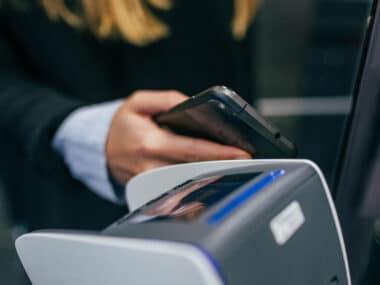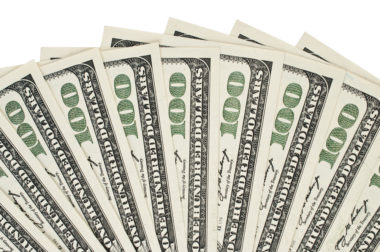Living in financial comfort isn’t as simple as just making money. Although plenty of Americans are comfortable with their income, many are still confused as to where their money goes each month. Long-term financial stability is achieved when you examine your finances, acknowledge your financial weak spots, create a budget, and implement effective ways to save money to maximize your potential savings.
This doesn’t mean that each and every penny has to be sent into retirement funds or savings accounts, but you should know exactly what your spending is saying about your future — and your creditworthiness.
Table of Contents
Where Am I Spending My Money?
It can be difficult to fix your spending issue if you are unaware of your spending habits. Take some time to look into your bank statements to get insight into what your money is going towards. This analysis should consider all of your accounts.
What Does My Budget Look Like?
You make your bill payments on time. You have built up multiple lines of credit, and your credit score is considered good. You make financially sound decisions (for the most part), but at the end of the month, you still may be looking at your bank statement with bewilderment.
This could directly stem from a lack of budgeting or a lack of knowledge on how to save money properly. When you’re comfortable with your current financial situation, it’s easy to wake up one day and unconsciously decide that you don’t really need a budget. However, frugal living tips help individuals stick to a budget in a myriad of ways — it doesn’t have to only be to pinch pennies.
For example, if your income allows it, you can actually budget for some extra luxuries, like shopping, entertainment, and vacations. Choosing not to get your finances in order is asking for trouble. Just because you have extra money during the month doesn’t mean you should spend it however you like. Spending your money with a plan and a purpose will help you understand where your money goes and which areas you might be able to adjust to your liking.
Controlling Your Spending
With that said, the first thing you will want to do is take a look at your spending habits for the last two or three months. Map out your bills and essential expenses that you know you have to pay each month. Then you can start putting certain types of expenses that pop up again and again into their own categories.
Once you have those fleshed out, examine where your money is really going. Determine if you are happy with your spending habits, or if you need to find and fix bad financial habits. If you feel like your budget could use some tweaking, now is the time to sit down and make those decisions.
If your priorities include vacationing once per year and going out to eat four or five times each month, that’s great, but you will need to mark it in your budget. Start saving a small amount each month at the beginning of the year. So, when you go to plan your summer vacation, you already have an allotted amount that you have been saving for a vacation.
You don’t have to plan every expense exactly, but if you want to allow for a few nights out, put aside a couple of hundred dollars just for that part of your budget. Then, if you don’t end up spending it all, it can go right into savings or wherever your budget needs it most.
Is Automatic Bill Pay Hurting Me?
Another large reason that people feel like their money is going down the drain is automatic bill payments. Many individuals question if using automatic bill pay is a good idea. There’s something much more personal about manually making a payment, even if it’s online. You are face to face with your money and you know how much is being spent.
With automatic bill pay, you lose that connection with your money. You don’t know how much was taken out unless you go back, check, and add it to your budget. You may not have time to balance your checkbook regularly. So, what ends up happening is the money comes out, you don’t even notice it, and you keep spending as you normally would until something goes wrong.
Perhaps you don’t have money for a purchase but it’s a necessity, so you need to charge it to a credit card. Regardless, you want to ensure that you are not putting yourself into too much debt.
Monitoring Automatic Payments
Automatic bill payments are convenient. When you have a stack of bills, it can take a large chunk of time out of your day to sit down and address them all. However, you should prioritize bill payments. If you feel like it’s taking too much time, split it up into a couple days per month (or more) and focus on your finances.
Even as it might cause you to lose touch with your bank statement, automatic bill pay can sneak up on you in a couple other ways as well. Impulse subscription services often charge your credit card automatically each month. If you’re not checking your statement regularly, you might forget to end a service that you really don’t need. Now, that really does mean money right down the drain.
What’s more, certain services charge a convenience fee depending on what type of card you use or how you pay. Paying straight through a bank account might come without a fee, but paying with a debit or credit card might cost you a few dollars each time.
Again, that’s a few dollars that could have gone into savings. If you have a few fees incurred through multiple bill payments, you could be wasting more money than you think. Five automatic bill payments per month with a fee of three dollars each means you’re losing $180 every year straight to automatic bill pay.
How to Not Spend All Your Money
No matter what age you are or what your financial status is, you should be putting money into savings — especially once you have a few large investments under your belt. If you own a car (or two) and/or own a home, you now run the risk of something breaking down or needing repair. It’s essential to have a savings account with enough money to cover any repairs you might have to pay for out of pocket, and then some.
When you’re younger, saving is pretty far from your mind, but as you get older you might make the decision to save a small portion of your income. If you have some disposable income that you’re using as “fun money” like mentioned above, you should consider tucking that excess into your savings.
Maybe you are already saving, but you are unaware of how much of your income you should save. While some say you should aim to save 20% of your paycheck, there’s nothing wrong with going above that to bulk up your savings. Having that cushion — or an emergency fund — can really take stress off of you when you’re thinking about those big purchase decisions later on.
Your Retirement Fund
In addition to a regular savings account, you’re probably working on a retirement fund. The closer you get to retirement, the more imperative it is to stash away some savings into a retirement fund. You don’t have to just have one. Most people that choose to save for retirement are using a 401(k), which is just fine. However, if you’re getting closer to midlife and maybe you don’t have quite as much saved as you would like, it could be time for another retirement fund.
First, examine your current preparations for retirement. If they aren’t as comprehensive as they should be at your age, you could be losing out on your own savings and employer contributions. Once you’ve resolved that, start putting as much as you can comfortably afford into your own savings account or another retirement account.
It’s not uncommon for people in their twenties to put about 5% of their earnings into 401(k) accounts, but you might decide to be a little more aggressive. Work out a percentage that is comfortable for you, without making your budget too tight. Then, sit back and watch retirement come to you.
Saving looks different for everyone, but everybody has the power to take control of their finances right now. By doing so, you can not only increase your savings, but save some for retirement and for entertainment as well.
Image source: https://www.flickr.com/





